Why Online Training
Will Not Make You a
Professional Tattoo Artist
The tattoo artist profession is growing in popularity, prompting many aspiring individuals to seek shortcuts to obtaining a diploma.
The rise of online tattoo courses makes the profession more accessible to a broader audience but also introduces significant challenges. Chief among these is inadequate training quality, as mastering the technical aspects and ensuring workplace safety are nearly impossible without hands-on mentorship.
Online learning can never replace real-world practice, where aspiring artists refine their skills under the guidance of seasoned professionals. Furthermore, such courses often diminish the prestige of the profession, creating a false impression that it can be mastered quickly and effortlessly.
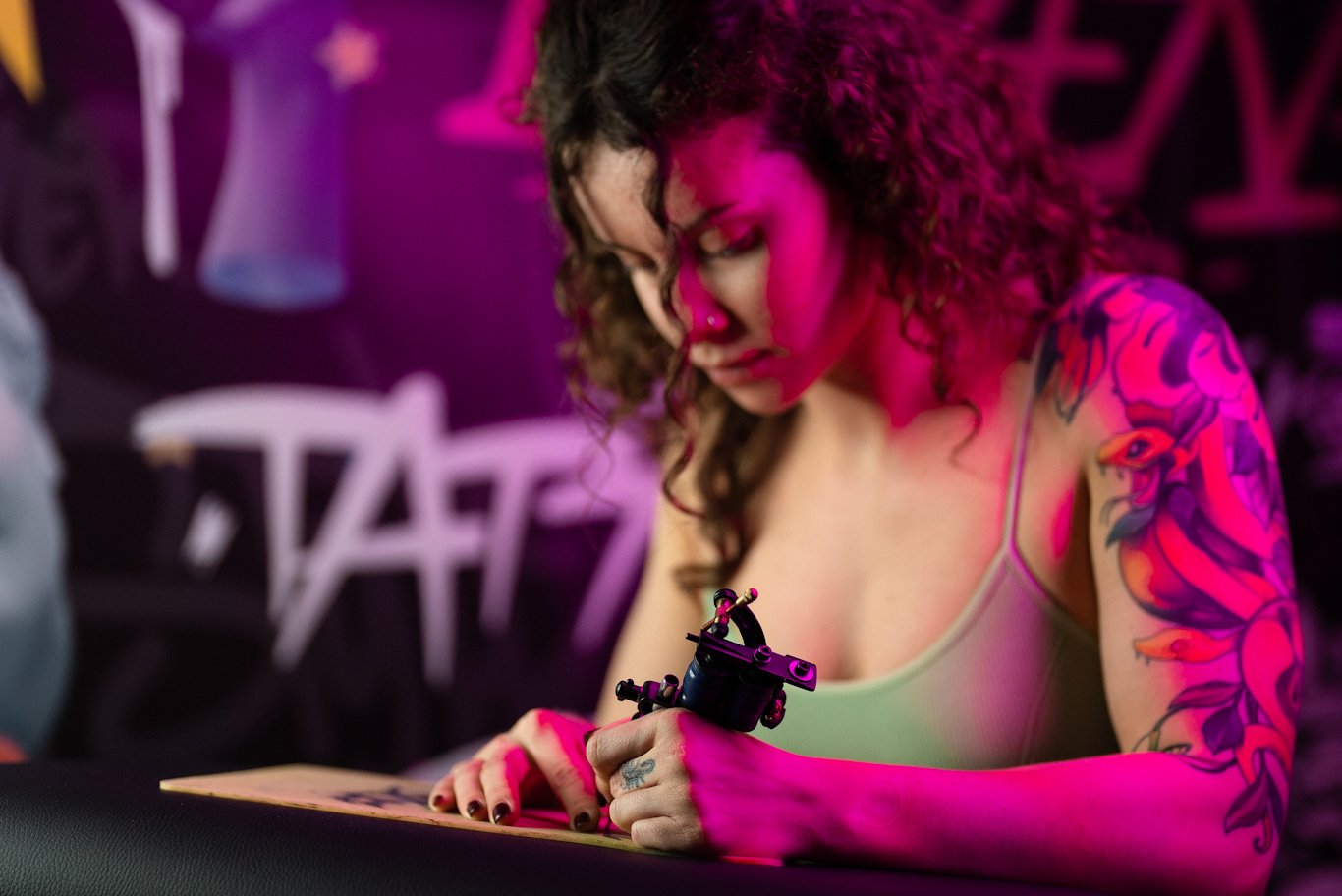
Major Drawbacks of
Online Tattoo Training
Online tattoo courses appeal to many due to their flexibility and convenience, allowing students to learn from home.
They are often low-cost, but the course fees are just the beginning of a budding artist’s expenses. It’s critical to understand that online training has more drawbacks than advantages:
- Illusion of Ease and Speed
- Marketers often claim that you can become a professional tattoo artist in a matter of weeks—or even days—disregarding the importance of extended hands-on experience under mentors. Advertisements frequently embellish results, misleading beginners into believing that basic online knowledge suffices. In reality, tattoo artistry demands extensive preparation and responsibility.
- Lack of Hands-On Practice
- Even practicing on synthetic skin doesn’t provide a full understanding of how needles interact with living tissue. Only by working with real models can artists learn the nuances of natural skin, its resistance, and how pigments behave. Understanding skin sensitivity and adapting techniques accordingly are vital skills that online courses cannot impart.
- No Opportunity to Learn Client Psychology
- Clients seek not just tattoos but emotional experiences. Each client is different—some may feel nervous about their first tattoo, others fear pain, and some doubt their design choice. Online training cannot teach effective client communication or how to create a trusting atmosphere. These skills develop through real-world interactions where artists learn to listen and respond to clients’ fears, doubts, and preferences.
- Challenges in Learning Techniques Without Live Examples
- The best tattoo artists achieved success through mentorship. Mentors point out mistakes, demonstrate proper techniques, and answer questions. In a studio, a mentor can show how to hold the machine, draw straight lines, or avoid applying excessive pressure.
- Insufficient Knowledge of Hygiene Standards
- Tattooing is not just about art—it’s about responsibility for clients' health. Tattooing involves invasive procedures requiring strict adherence to hygiene standards. Online courses can outline sterilization protocols and workspace disinfection but fail to instill the meticulous attention required in practice. Minor lapses can lead to serious consequences.
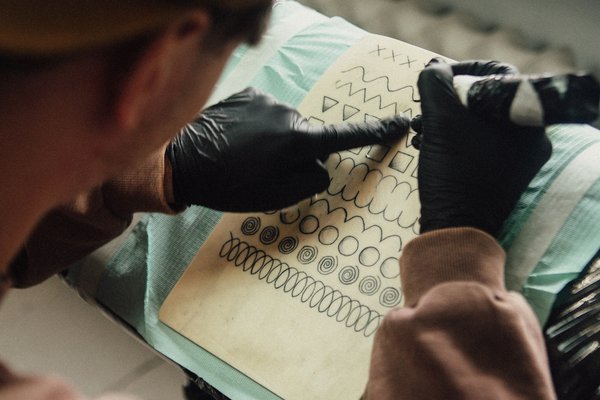
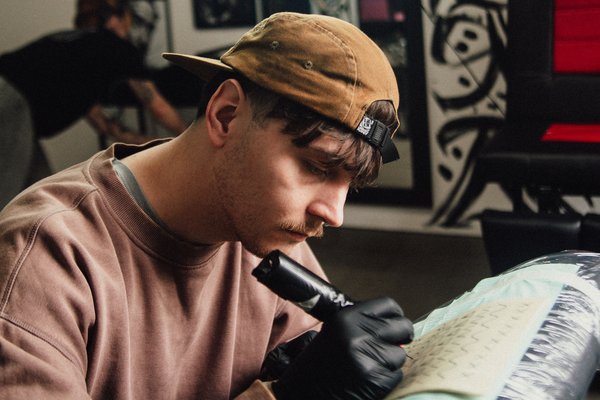
Risks for Tattoo Artists
With Insufficient Practical Training
Inadequate practical training poses risks to both the artist and the client.
Proper training, practical experience, and continuous skill improvement are essential.
Medical Risks:
- Infections: Non-sterile tools or poor hygiene practices can result in dangerous infections, including hepatitis B, C, or HIV, as well as bacterial complications.
- Allergic Reactions: An inexperienced artist may fail to warn about potential allergies to ink or materials, leading to rashes or anaphylactic shock.
- Skin Trauma: Working over moles, hemangiomas, or warts could provoke malignant transformations like melanoma.
- Toxic Exposure: Improper handling of pigments may expose the artist to allergic or toxic reactions.
- Scars and Skin Deformation: Incorrect ink application depth or poor technique can cause scarring or skin damage requiring medical intervention.
- Chronic Skin Conditions: Faulty tattooing can trigger conditions like psoriasis or dermatitis.
- Infections Due to Poor Aftercare Advice: Novice artists may fail to provide adequate aftercare instructions, increasing the risk of inflammation.
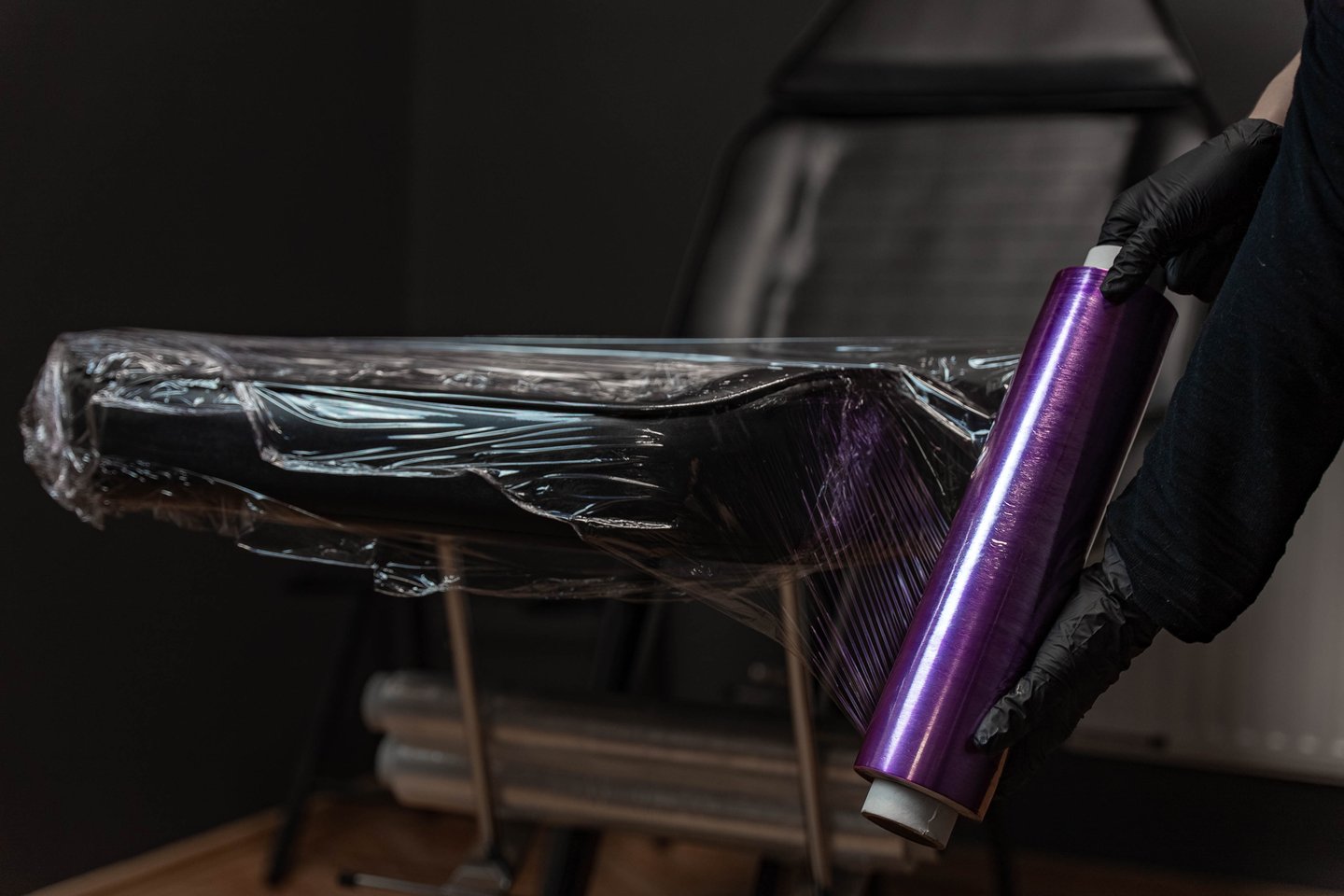
Legal Risks:
- Lawsuits for Damages: Unsatisfactory tattoos or medical complications may result in legal claims for health or contractual breaches.
- Operating Without a License: In regulated regions, tattooing without a proper license can lead to fines or license revocation.
- Lack of Documentation: Failure to maintain client agreements and medical records complicates legal defense.
- Disputes Over Miscommunication: Poor communication regarding tattoo details (size, style, color) can lead to client complaints or lawsuits.
- Hygiene Violations: Ignoring hygiene standards risks inspections and penalties from regulatory authorities.
- Copyright Issues: Inexperienced artists using unauthorized designs can create legal troubles for themselves and their clients.
Psychological Risks:
- Stress Due to Insecurity: Lack of practical experience creates constant anxiety, impacting work quality.
- Reputation Damage: Negative reviews from dissatisfied clients can harm a professional’s reputation.
- Burnout: Insecurity, fear of mistakes, and lack of preparation can lead to emotional exhaustion and professional disillusionment.
- Erosion of Trust in the Industry: A growing number of dissatisfied clients can reduce overall demand for tattoos.
- Client Financial Stress: Fixing poor-quality tattoos can be costly, adding to clients’ emotional burdens.
- Disappointment and Social Pressure: Poor results can cause emotional discomfort for clients, especially if the tattoo held personal significance. Visible tattoos may lead to judgment or unwanted questions, affecting self-esteem.
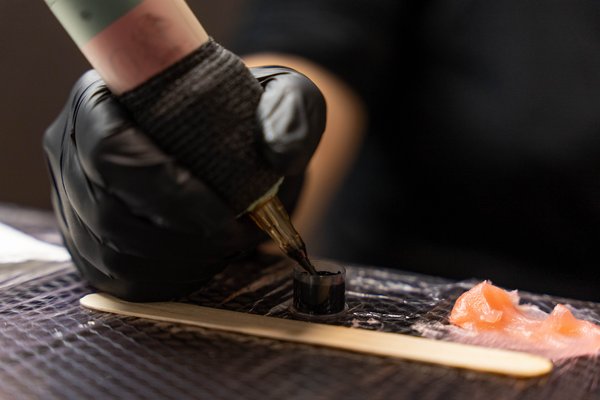
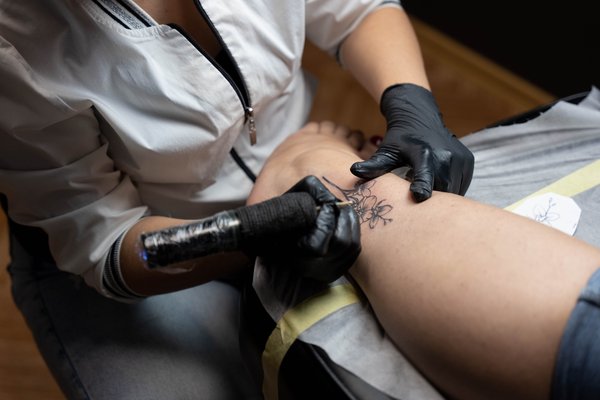
Advantages of In-Studio
Training at VEAN TATTOO
High-quality training is about responsibility.
Being a tattoo artist is a serious profession requiring thorough practical preparation, impacting not just aesthetics and income but the health of both clients and the artist.
- Access to Professional Tools and Materials: VEAN Academy provides machines and all necessary supplies during training.
- Discount Programs: Trainees benefit from discounts on equipment purchases and workspace rentals within the VEAN studio network.
- Practice-Based Theory: Courses are designed from the collective international experience of thousands of network artists.
- Live Practice: Training on real people teaches how to handle natural skin and respond to pain or unexpected situations.
- Mentorship: Professional mentors teach fundamental skills, share insights, and correct techniques.
- Hygiene and Sterility Standards: Instruction covers advanced hygiene protocols to mitigate health risks.
- Practical Psychology: Gain real-world experience in client communication that no online course can replicate.
- Studio Atmosphere: Collaborating with experienced artists fosters motivation, inspiration, and deeper understanding of the craft.
- Internationally Recognized Diplomas and Employment: Graduates receive an accredited diploma valid in Europe. Those excelling in their courses often secure positions within VEAN studios.
VEAN TATTOO Academy offers courses for all levels—from beginners to experienced artists seeking improvement. The curriculum emphasizes practice—starting on synthetic skin and progressing to live models under close supervision.
Upon graduation, students receive a diploma that’s easily verified and a chance to work across Ukraine and Europe, particularly within VEAN TATTOO studios. Choose VEAN TATTOO for a successful career in the tattoo industry!
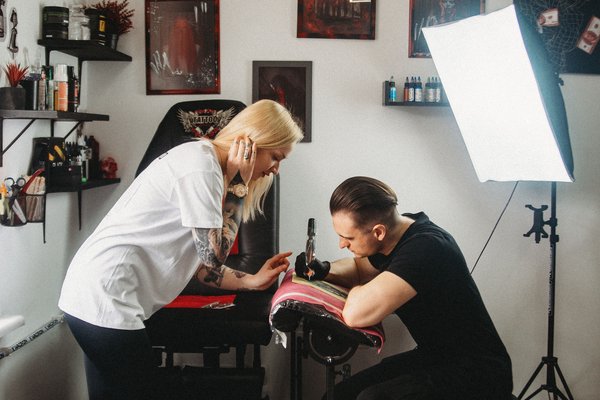
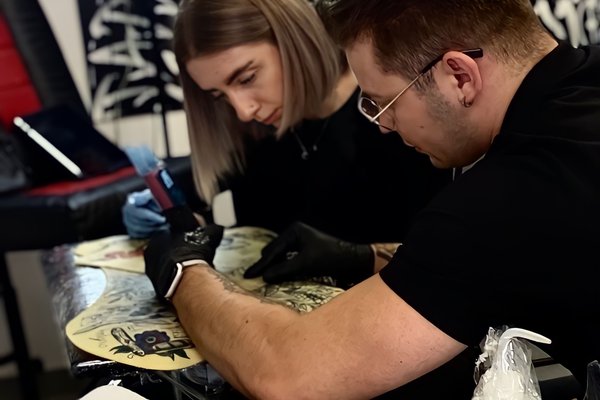


 Create a sketch in the VEAN TATTOO AI generator
Create a sketch in the VEAN TATTOO AI generator




